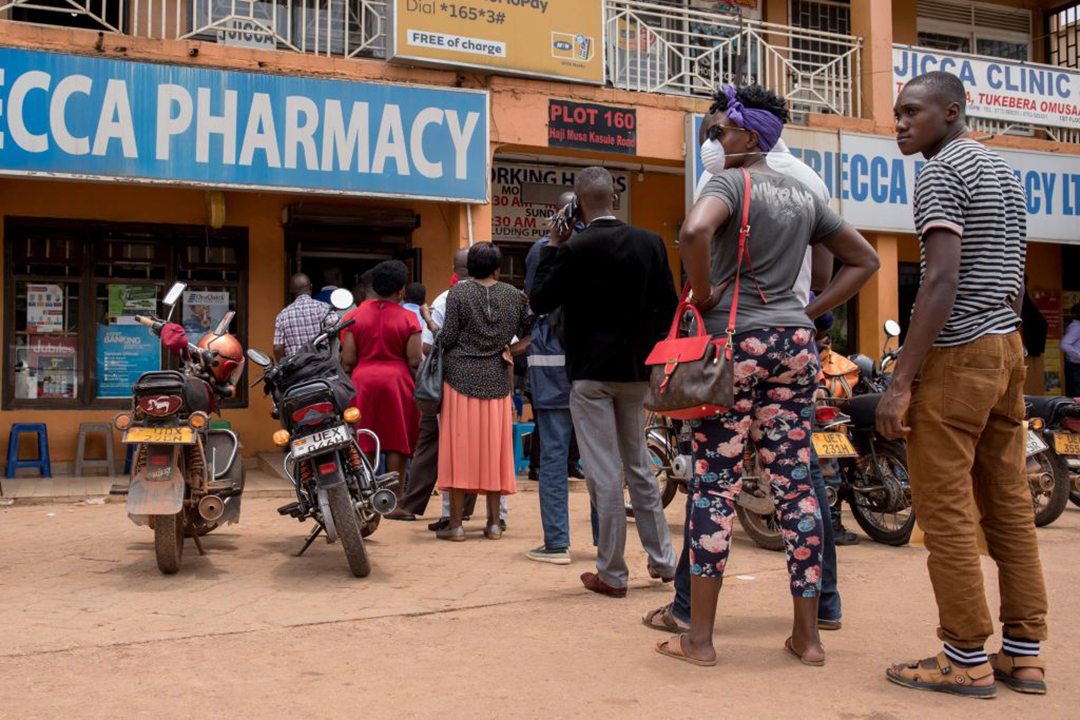COVID-19 Highlights Need for African Pharmaceutical Manufacturing
ADF STAFF
Last year, Margaret Ilomuanya was unable to find her aunt’s hypertension medicine in Lagos, Nigeria’s largest city, for nearly three months.
Her experience was common in Africa, where every country suffered some degree of medical supply chain disruption due to the COVID-19 pandemic.
Lockdowns, border closures and travel bans worldwide put a significant dent in Africa’s supply of essential medicines. The pandemic also led to increased prices for medicine, masks, hand sanitizer, personal protective equipment and other equipment.
Ilomuanya, senior lecturer in the Department of Pharmaceutics and Pharmaceutical Technology at the University of Lagos, wants to see a solution to the root problem — a lack of health care manufacturing on the continent.
“Africa must begin to produce medicines for Africa, with raw material produced in Africa,” she said in an article on the International Finance Corp.’s website. “There’s a big risk in relying on elaborate global supply chains in which the supply of many essential and critical drugs is dependent on overseas suppliers.
“We have the wherewithal to build the local pharmaceutical industry, and we have the hands. We can take it from bench to bedside.”
One of many systemic vulnerabilities the COVID-19 pandemic has exposed in Africa is an overreliance on imported medicine and medical supplies.
In 2020, there were roughly 600 African pharmaceutical manufacturers in Africa, according to financial services company Fitch Solutions. Of those manufacturers, 80% were based in eight countries — Algeria, Egypt, Ghana, Kenya, Nigeria, Morocco, South Africa and Tunisia.
Four countries had more than 50 manufacturers, while 22 nations had no local production.
It’s a painful lesson learned that international leaders such as Li Yong, director general of the United Nations Industrial Development Organization (UNIDO), say will incite critical changes.
“The experience of 2020 has highlighted Africa’s vulnerability to supply shorts,” he said during a virtual U.N. meeting. “It has underlined the need for greater self-sufficiency in production of essential medicines, diagnostics and other health products.
“Strengthening the health industries in Africa has been a long-established objective, and substantial progress has been made.”
About 94% of Africa’s pharmaceutical and medicinal needs are met with imports at a cost of $16 billion a year, according to estimates by the U.N. Economic Commission for Africa.
In the past, the continent lacked the bargaining power of other regions. That is changing.
In response to the pandemic, the Africa Union in June 2020 created the Africa Medical Supplies Platform, a central digital system that helps consolidate procurement of medical supplies.
This year, the African Continental Free Trade Area launched with the aim of uniting the continent as one economic market — the largest in the world — and serving more than 1.3 billion people.
Dr. Janet Byaruhanga, senior program officer for public health at the AU Development Agency, expects the free trade area to boost the continent’s lagging medical manufacturing sector.
“A pooled procurement mechanism will encourage leading global generic pharmaceutical manufacturers to build plants in Africa or partner with African pharmaceutical companies to manufacture generic products,” she wrote on the U.N.’s website.
The African Development Bank is also developing a 2030 vision for Africa’s pharmaceutical industry, according to U.N. Deputy Secretary-General Amina J. Mohammed.
“The African Continental Free Trade Area opens new opportunities and creates a $250 billion pharmaceutical market with the potential for further growth,” she said during the September meeting. “Let us use the momentum of these initiatives to drive the production of affordable and high-quality medicines for Africa.
“In responding to the pandemic, Africa also has the impetus to prepare for the next pandemic through the lessons and opportunities of today.”


Comments are closed.